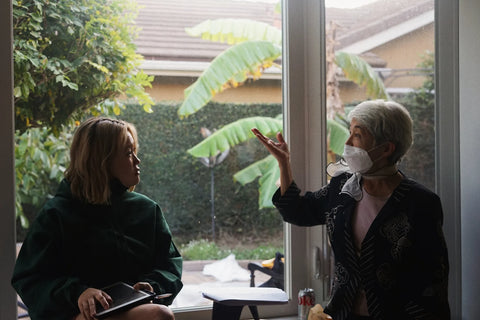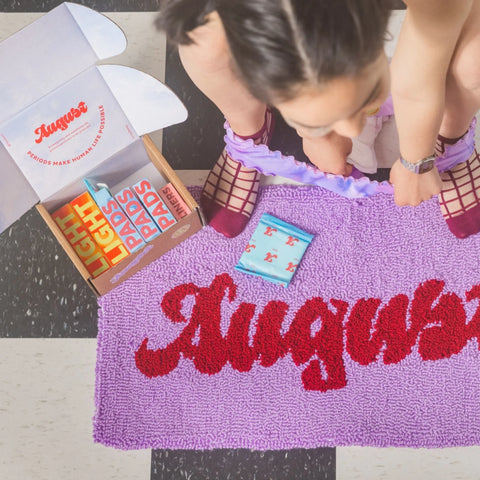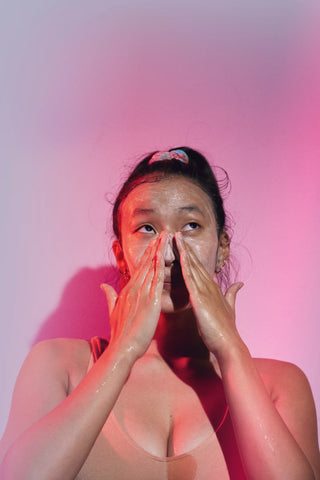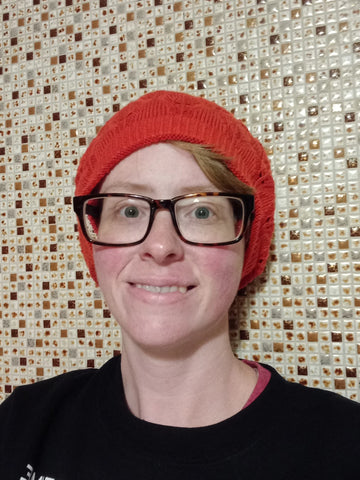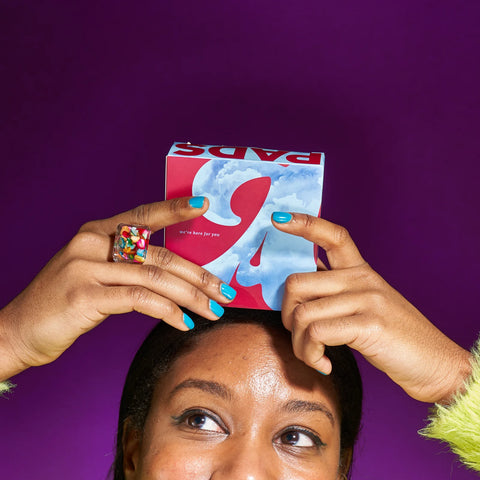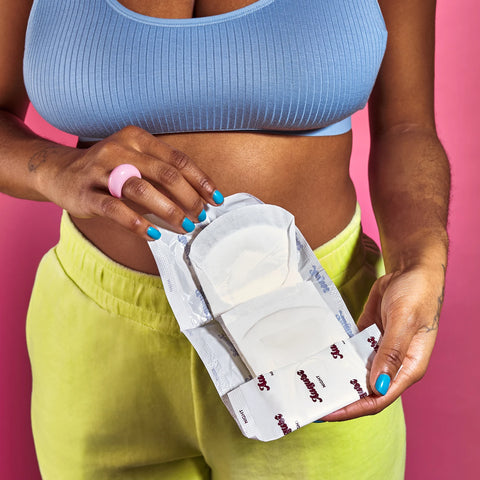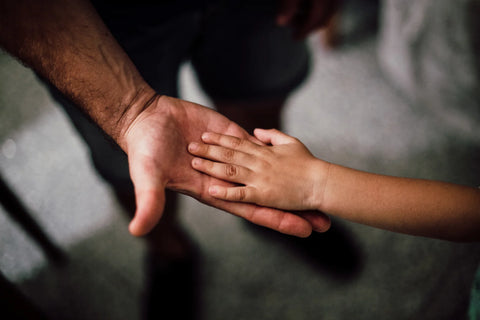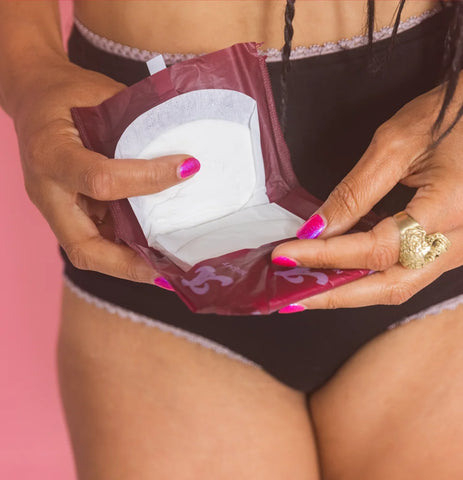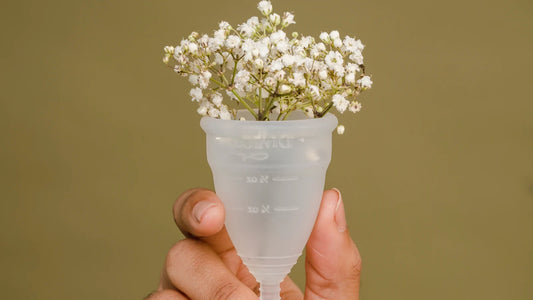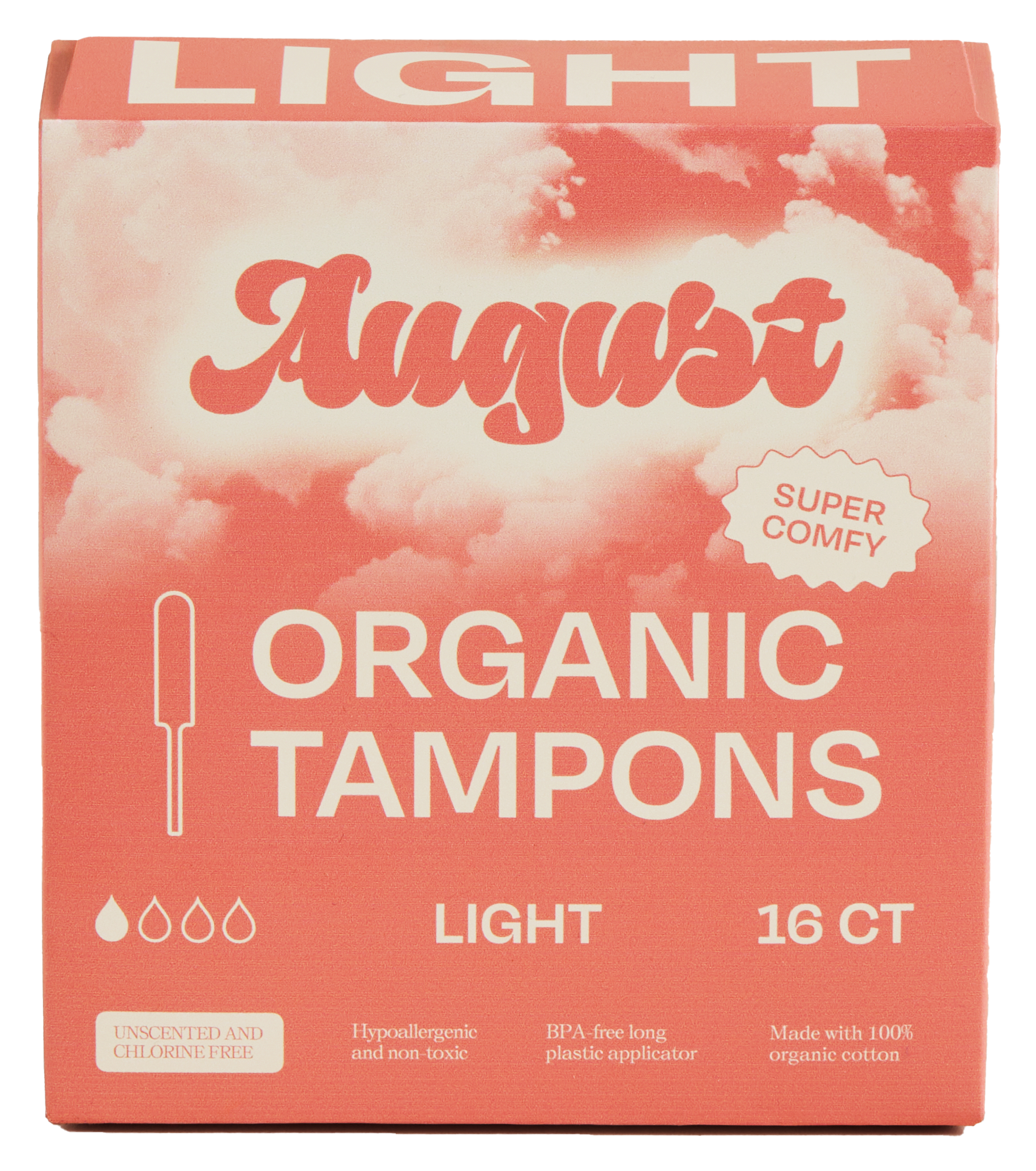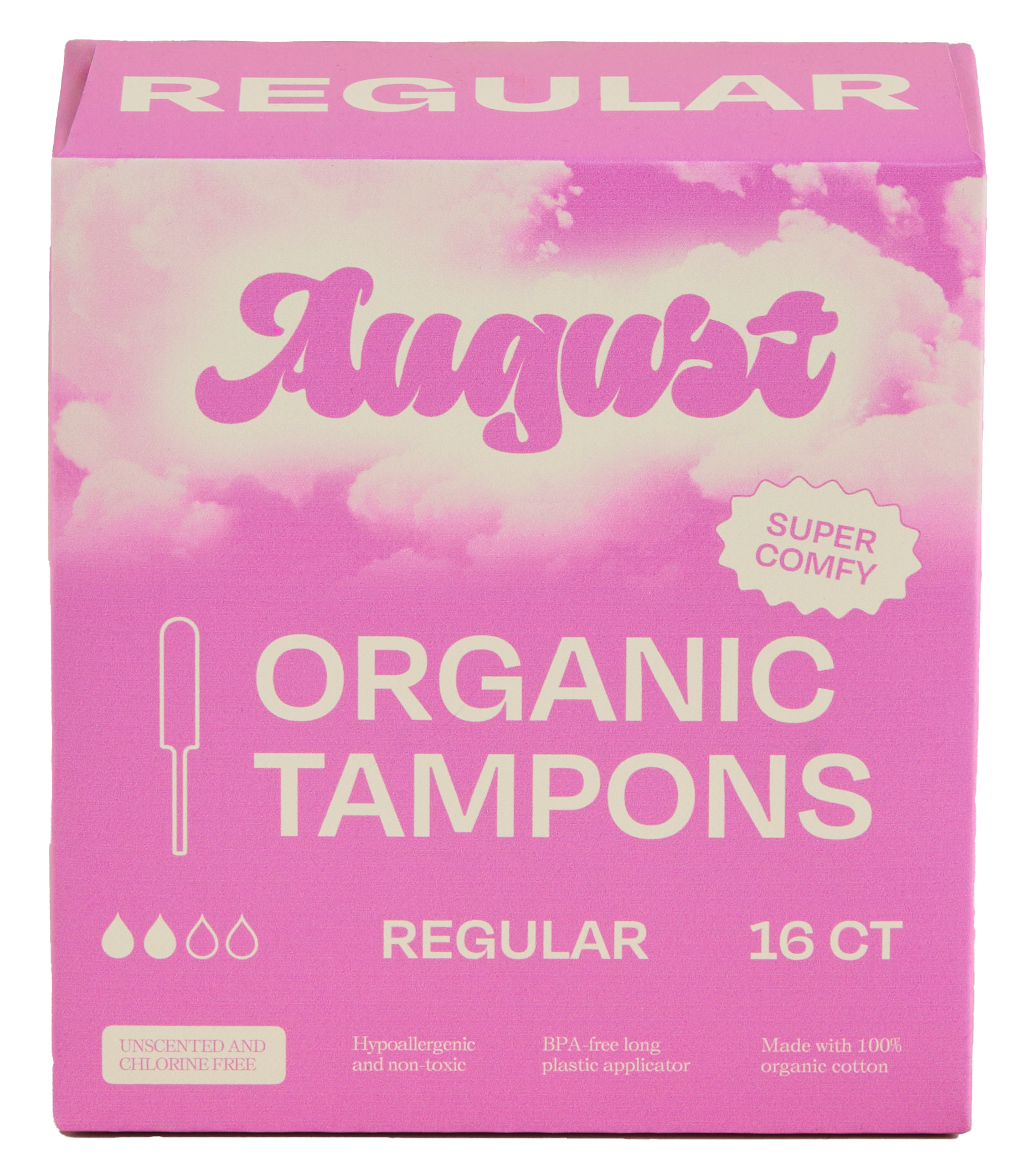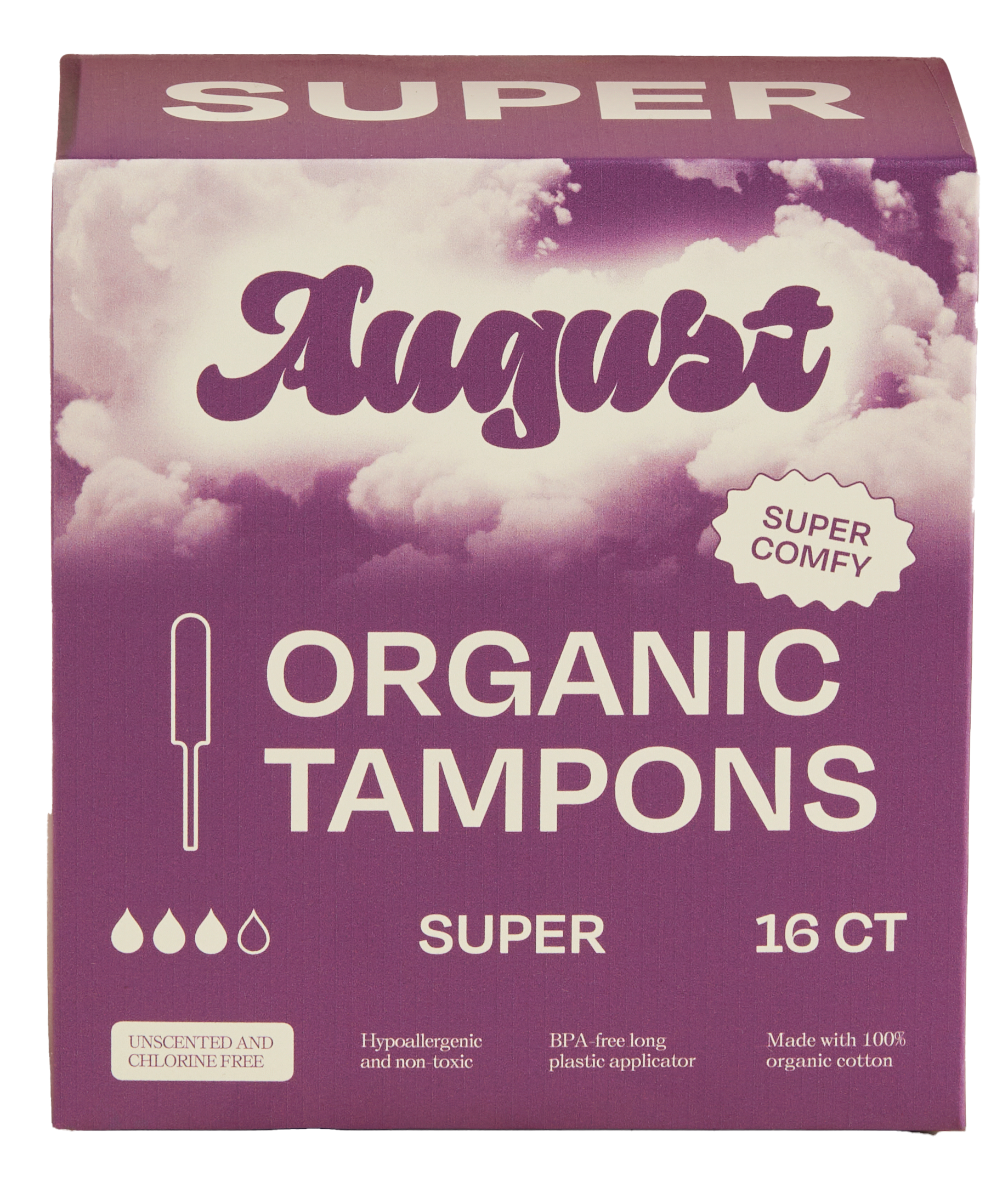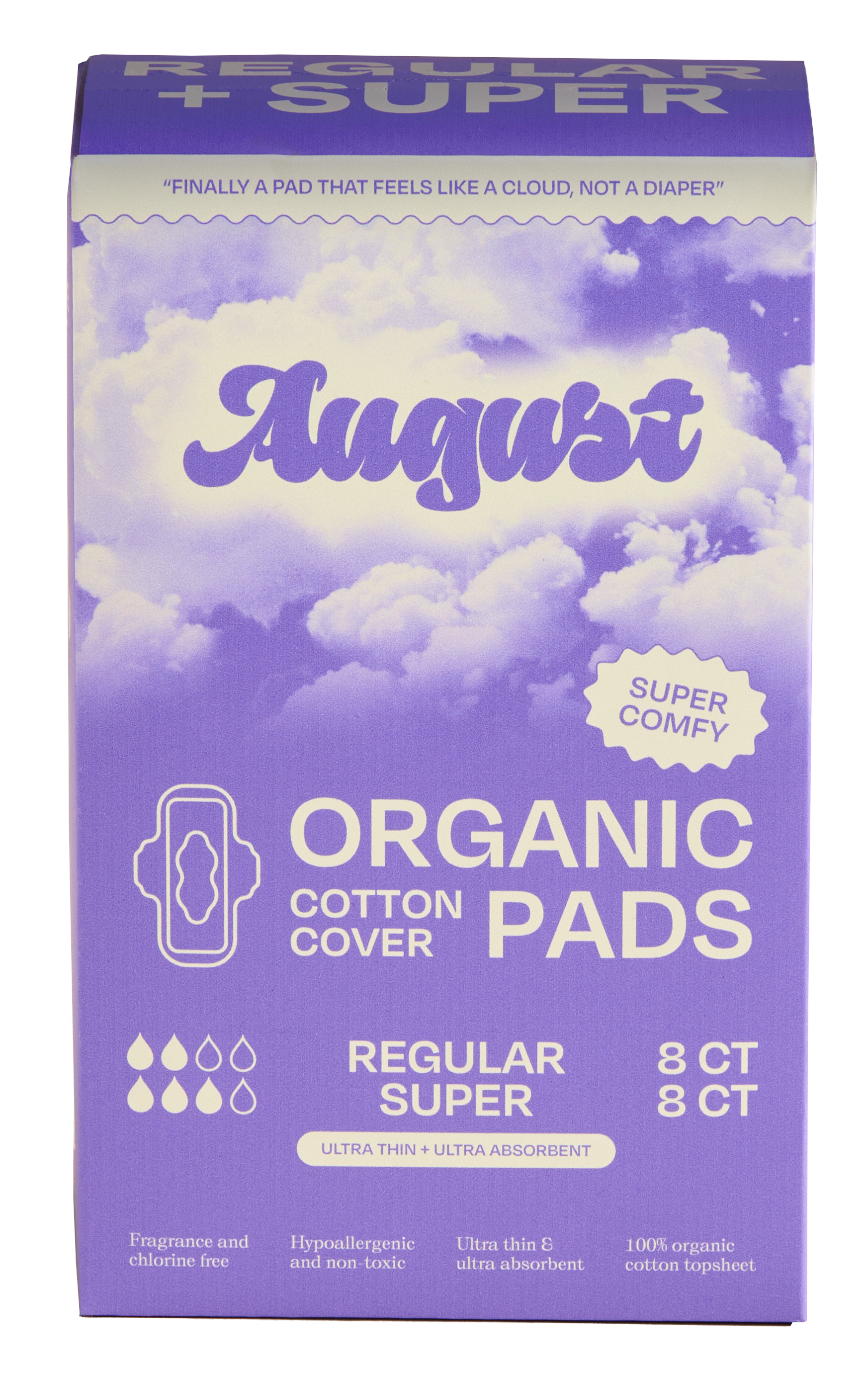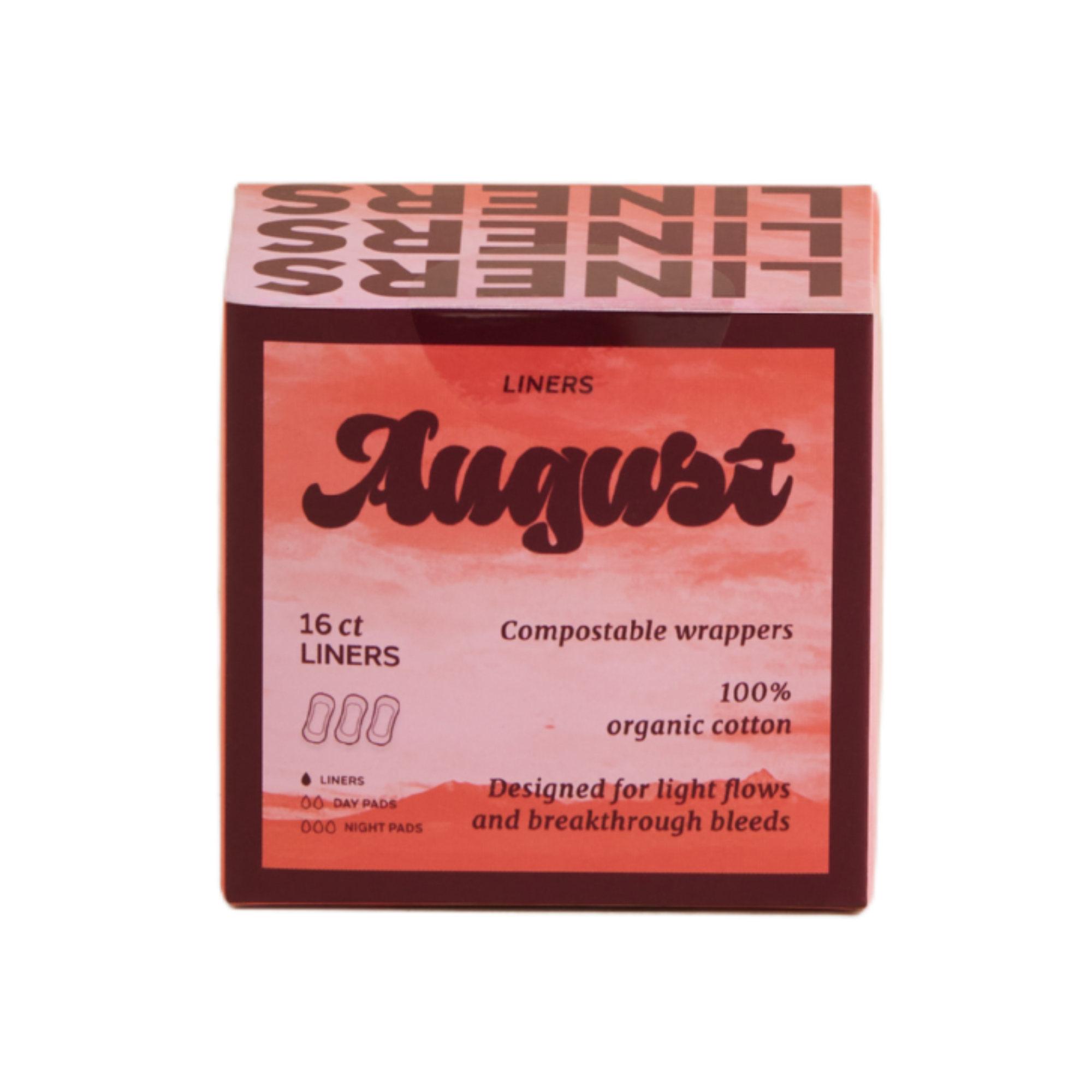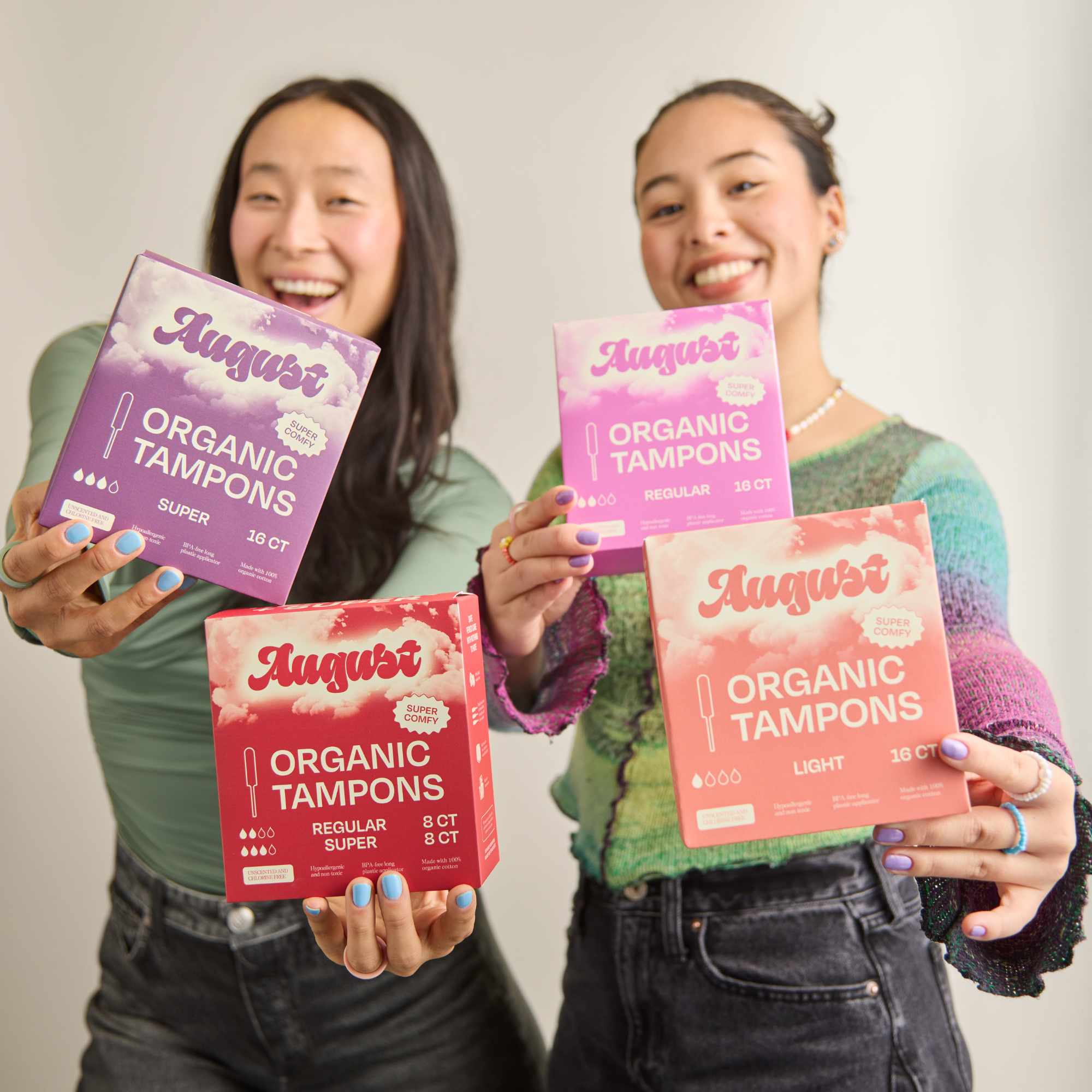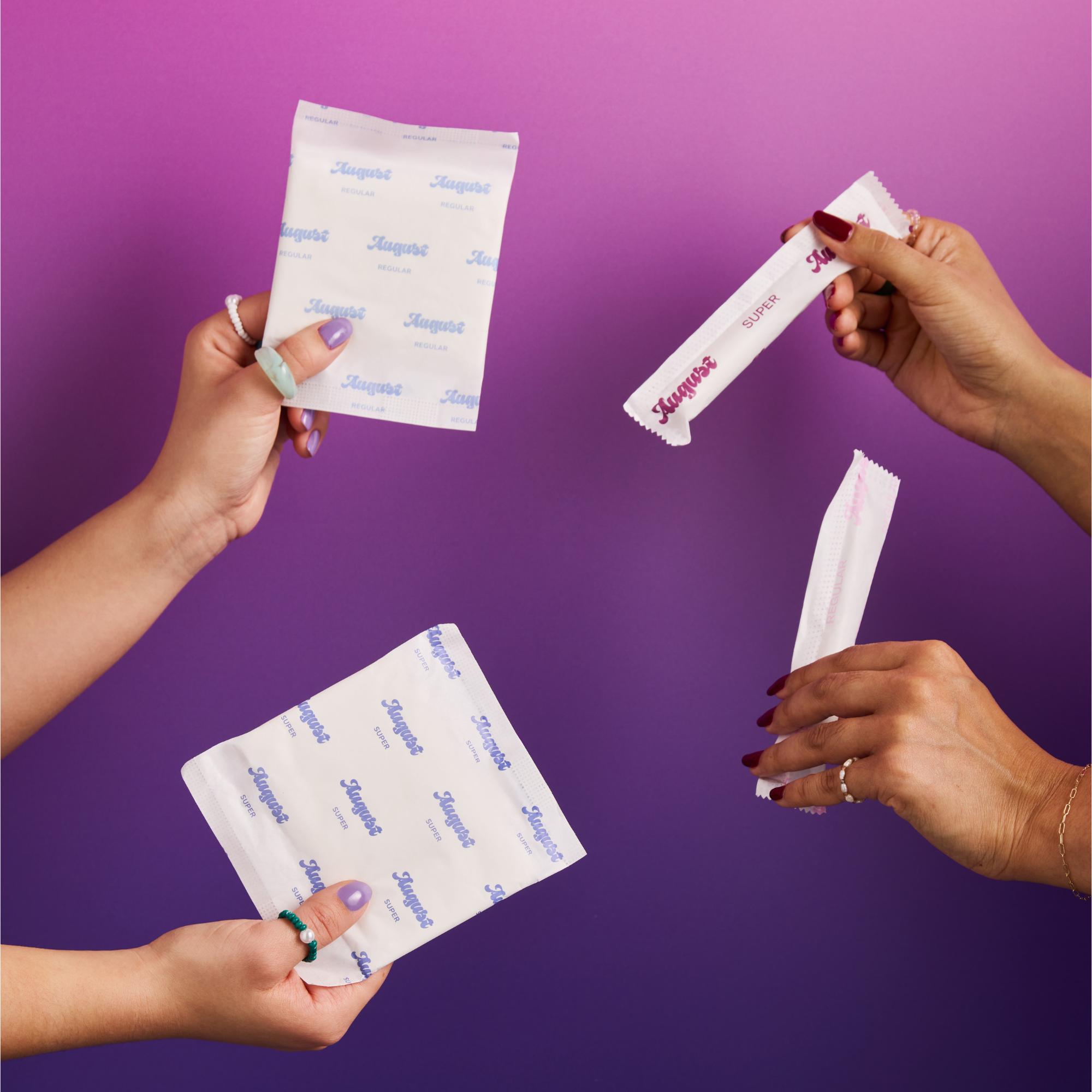So you’re starting the new school year…and you might be starting your first period?
Don’t panic. Just Ask August instead.
We've got 250 verified answers from our trusted Medical Board to provide you with foundational knowledge that you should know about your reproductive systems and menstrual cycle. (Here for you in case your health class instruction isn’t <3)
We even translated it all to be in ‘Gen Z lingo’ so that you feel empowered by the information. It is SO important to get to know your flow, and feel confident knowing your body’s needs.
Keep reading for tips about getting your period at school.
Should I be embarrassed about being a menstruator at school?
Ummm...absolutely not!
Hopefully through more open and honest conversations in health class, among your friends, in locker rooms, and at home, menstrual period stigma can be broken down so that even non-menstruators feel comfortable talking about them!
Afterall, about 24% of the global population are currently of reproductive age (aka have gotten their period), so you’re really not alone.
And that number is only increasing – our period fam is becoming more powerful😉
Who should I tell at school when I get my first period?
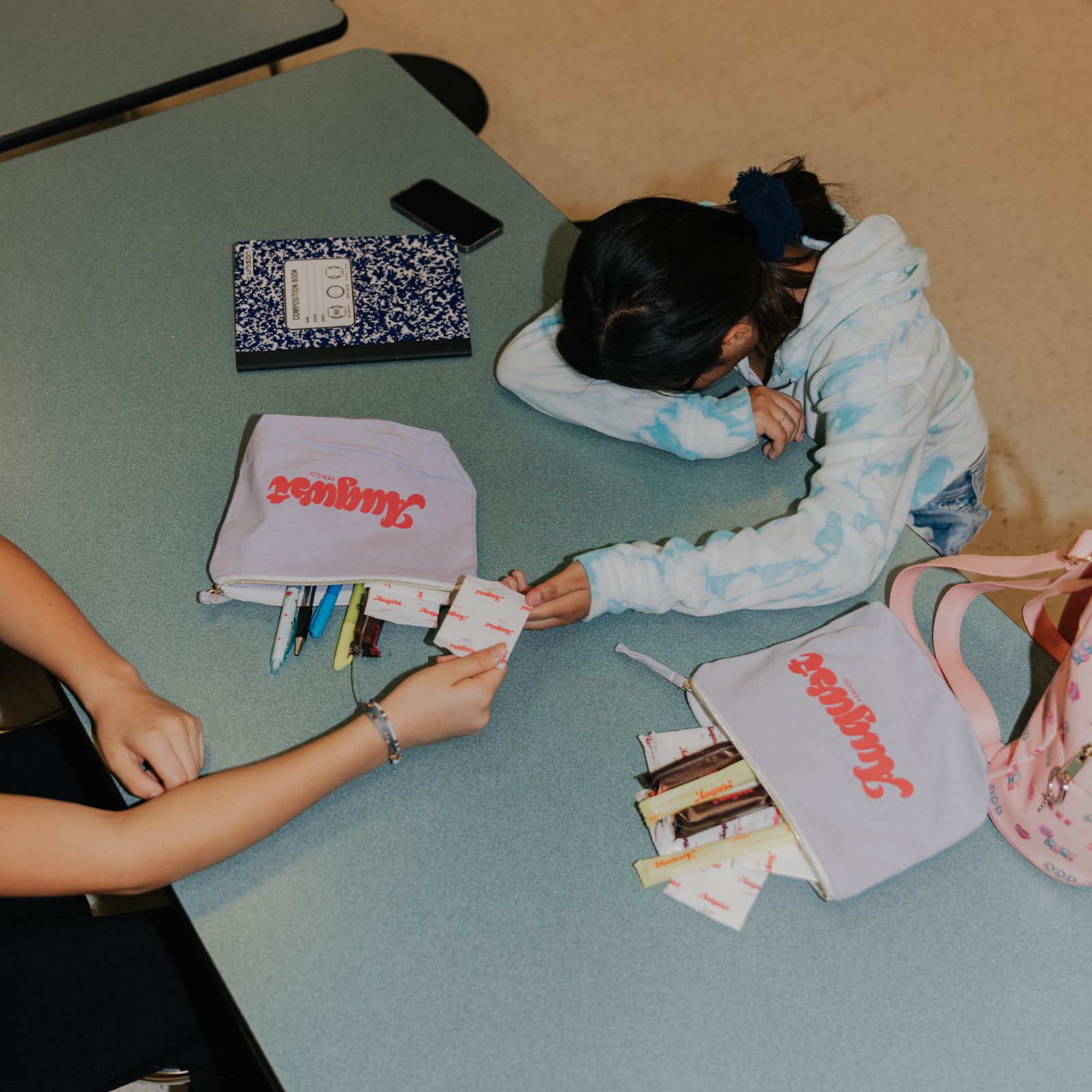
Figure out who your favorite, most trusted person in the building is.
This could be:
- A teacher, guidance counselor, coach or support staff – they’ll likely have menstrual products (maybe even August period care!) on hand or know where they could source some within the school environment.
- But it could also be a friend or classmate…
Regardless of who it is, tell them in a space that you feel comfortable (could be over text or as a written note) and articulate what you need from them. This might be:
- A period product
- Something to help with cramps or a headache
- Some food or a drink of water (water does wonders to calm nerves!)
- A change of clothes or a plan for the rest of the day
- Advice – maybe you have questions you’d like to ask someone who’s already gotten their period?
- Someone to vent to if you’re feeling emotional – inhale, 2, 3...exhale, 2, 3. Don’t forget to breathe.😌
All in all, find the person who you feel most comfortable sharing this news with, and go from there.
How should I tell my parents I got my period?
Yes – you do need to tell them FYI…
- So that you can get period products, learn how to dispose of them and talk through how to maintain your personal hygiene while on your period!
Try not to be nervous!
- It’s likely that there’s at least one person in your house who’s had a period or lived with someone with a period in their lifetime.
Do it at a time and in a space where you feel comfortable sharing this news.
- This is your period, and your story to tell.
Choose your method of communication:
- Verbally (either face-to-face, or on the phone)
- Written (through text, or write them a letter…if you want to be subtle…and maybe a little funny…just write that you need some pads and tampons on the grocery list.
Once you get past the first time telling them, it will hopefully feel more normal to talk about your period moving forward!
Hey teachers! Let’s brainstorm how you should speak to your students about getting their period at school…
Educators should go into a period conversation with the intention of teaching them about the process itself – NOT the stigmas and cultural misconceptions that tend to surround periods.
You have the opportunity to change the narrative about periods for young menstruators (AND non-menstruators) to not feel shameful about the period experience.
What are the gaps in the menstruation education curriculum?

Education curriculum usually explains what periods are, but they lack the details needed to feel empowered by your period and reproductive health.
For example:
- How having a period can affect one's body and lifestyle beyond adolescence.
- An equal amount of time teaching the anatomy of all bodies.
- How to properly, and hygienically use period products.
- Gender inclusive period talk so that people who are transgender, intersex, or non-binary also feel included in the sex-ed curriculum
That’s what we at August period care are trying to do…democratize access to education and encourage you to stay curious about your body!
As you get to know your body and learn more in health class, you may be curious about visiting the OBGYN.
"We suggest coming to see an OB/GYN just to say hi at some point as a teenager, whether you're sexually active or not. You can ask us all of your questions.
We'll test for sexually transmitted infections if you are sexually active in any way. We don't start doing pap smears until you’re 21 years old!"
– Dr. Heather Irobunda, MD, FACOG (she/her)
Read our article about medically advocating for yourself here!
How often should I change my period products?
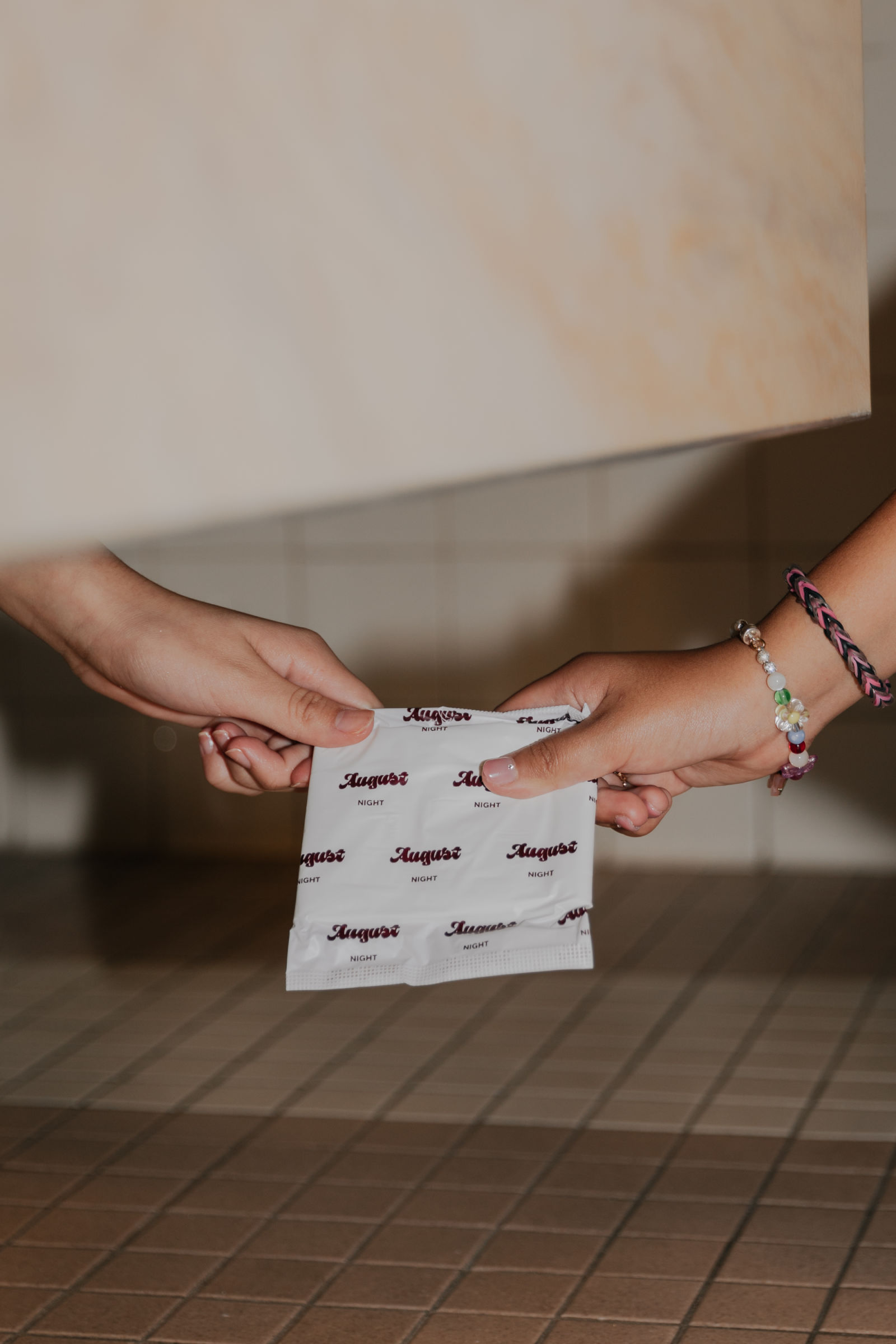
It depends on the flow frequency of your period! Typically, every 4-8 hours, but the true test is when your product is close to being soaked through.
If you have time between the bell, it’s always worth popping into the bathroom while on your period!
Check your gym office or school nurse if you’re low on pads or tampons. Or, hopefully you have a bestie to rep the flow with who can offer you a period product in a moment of need.
You may hear whispers of ‘TSS’ in the school bathrooms…
TSS, aka Toxic Shock Syndrome is not something that you need to be overly scared about since it's less common than you think.
- Only around three of every 100,000 people (.003%) are diagnosed with TSS related to tampon use.
- In the U.S. specifically, general TSS affects approx. 3-6 people per 100,000 per year and tampon-use TSS occurs in about 1 in 100,000 menstruators.
That’s right – TSS isn’t exclusively caused by tampon-use! Menstruators AND non-menstruators can get toxic shock syndrome from: burns, boils, insect bites or infections after surgery.
- About half of the reported cases are linked to use of tampons; the other half are not.
It’s a serious illness for people who do get it, so let’s not laugh it off, but when diagnosed and treated early there is a good chance of recovery.
“I’m going into Grade 11 and still don’t have my period – is there something wrong with my body?!”

Irregular periods are very common for the first few years of menstruating – and sometimes even longer.
Remember that 'normal' looks different for everyone! As you get older, your cycle length and flow might change. Typical cycles are between 21 days to 35 days and bleeding should last from 2-7 days.
If you notice any recurring irregularities, check in with your doctor. Sometimes, it is just caused by weight loss, change in appetite or exercise habits. But on the other hand, there could be an underlying period disorder that you could catch early!
Do you feel better about getting your period at school now?
If you still have some lingering questions, add the #AskAugust database to your summer reading list and see what information you can collect before your first day of classes…or before your period starts <3
Here are a few quick reads that we suggest:




